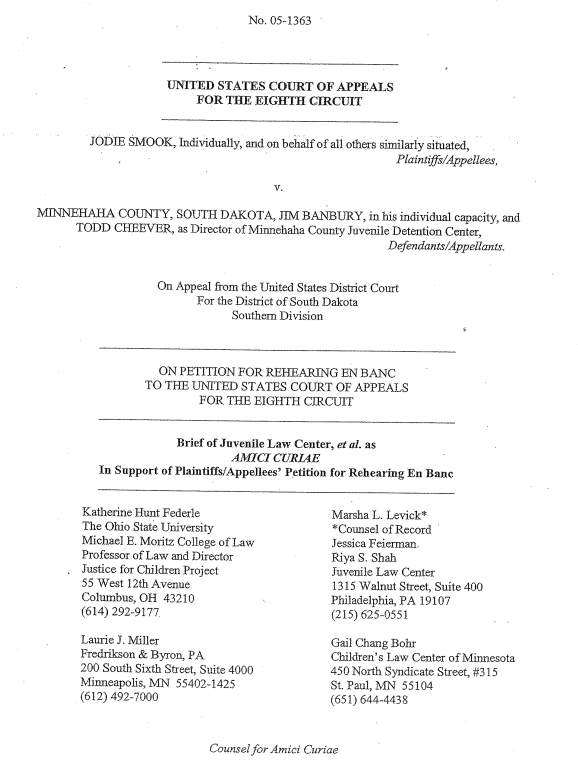
Summary of Argument
This case involves a question of exceptional importance regarding the constitutionality under the Fourth Amendment of the Minnehaha County Juvenile Detention Center’s (JDC) policy to strip-search juveniles arrested on minor violations. The panel’s decision in this case sets a disturbing precedent that departs from controlling case law and widely accepted psychological research. Purportedly based on the longstanding child-protective principles of parens patriae and in loco parentis, the decision flips these principles on their heads to justify the unwarranted infliction of potentially serious trauma to already vulnerable youth. These principles, centuries old and intended to shield children from harm, are wielded here as a sword to penetrate the most personal zone of privacy—the clothing covering one’s body—under circumstances where adults could not be so violated. Indeed, the panel’s decision conflicts with the decisions of this Court and virtually every other circuit that strip-searches of adults in similar circumstances are unconstitutional. In so distorting or misapprehending Supreme Court precedent concerning parens patriae and in loco parentis as well as Fourth Amendment case law concerning adults, the panel denies youth critical Fourth Amendment protections—in the guise of protecting them from harm.